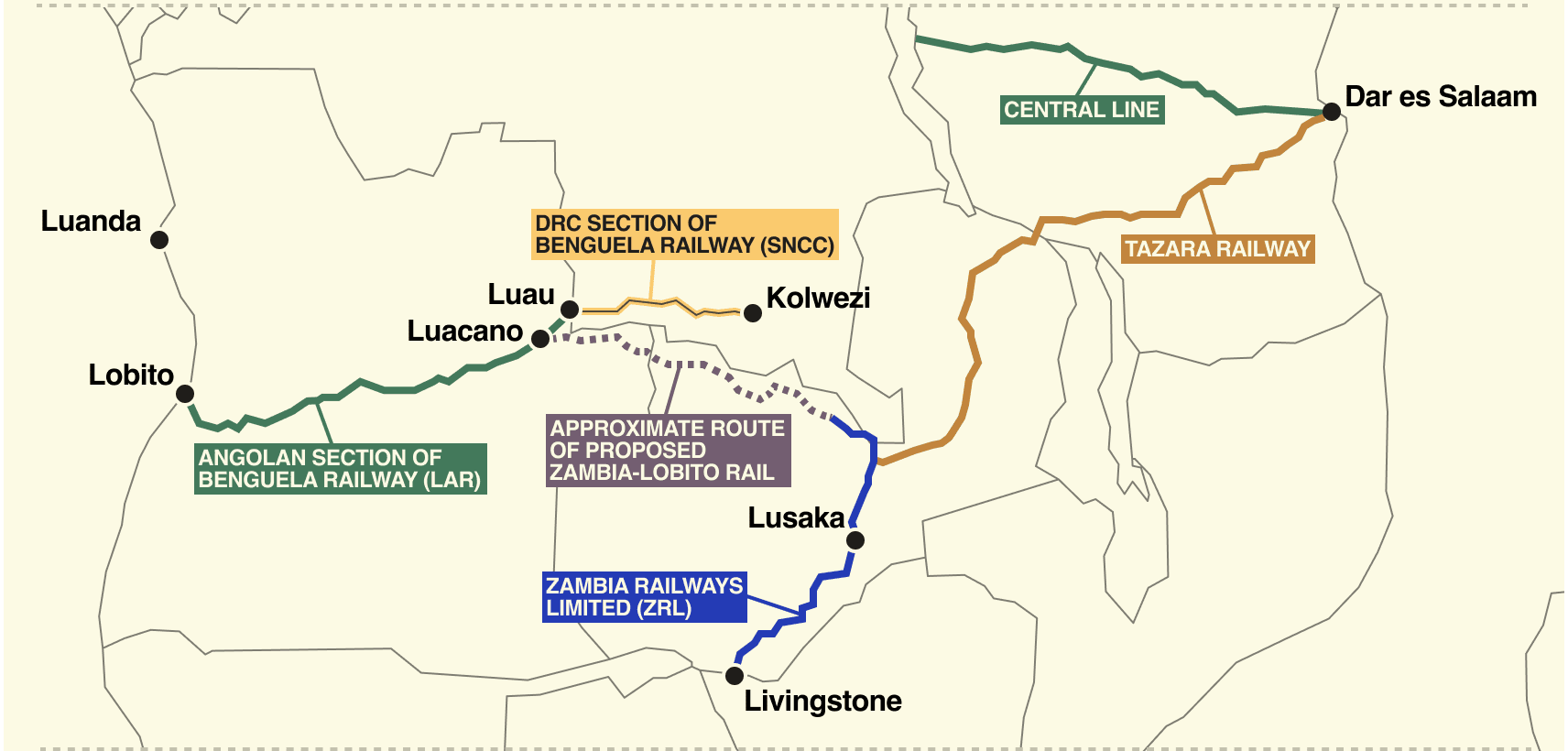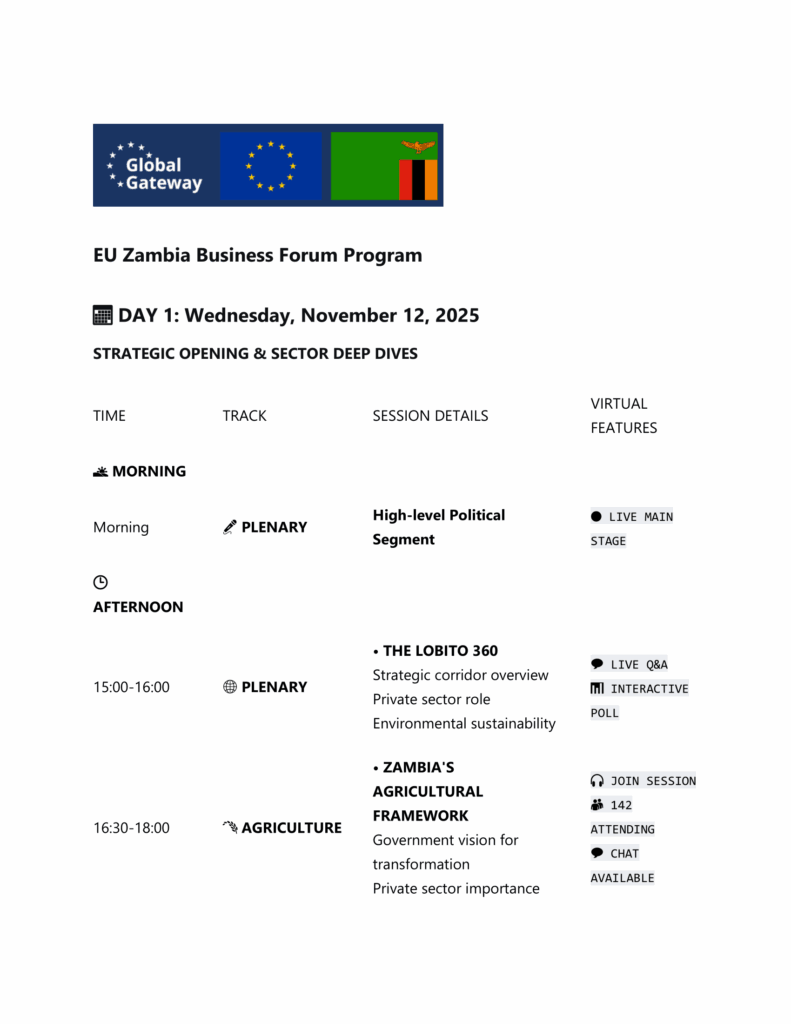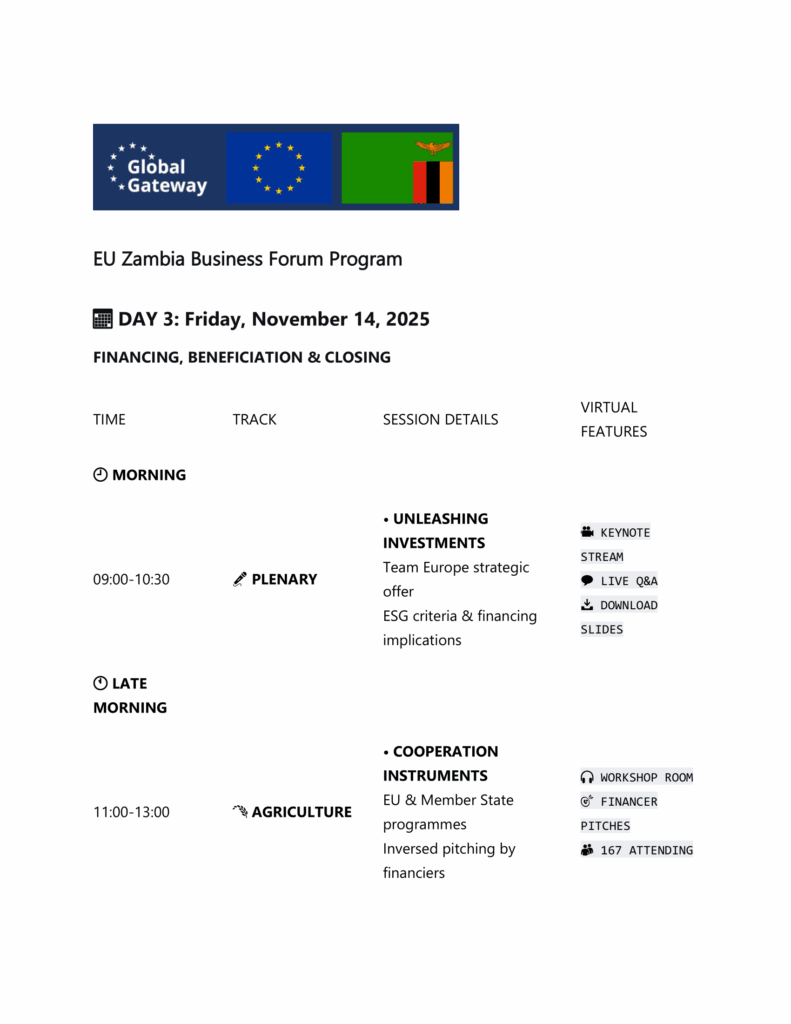Taking place from the 12 to 14th November at Ciela Resort in Lusaka, the EU Zambia Business Forum brings together European and Zambian stakeholders to drive structured dialogue, investment matchmaking, and pipeline development in three (3) priority sectors: Agriculture, Clean Energy, and Critical Raw Materials (CRM). Over 450 participants are expected – including investors, developers, Government, and civil society – jointly building the corridor’s pathway to inclusive growth.
Why attend?
Targeted Business Matchmaking (B2B/B2G): The forum is designed to facilitate pre-requested, structured meetings where Zambian companies can directly engage with European investors, financiers (like the EIB), and government officials (B2G) to discuss concrete projects and potential commercial collaborations.
Specific Investment Cases: Dedicated tracks will focus on the three priority sectors (Energy, Agriculture, and Critical Raw Materials) and present actual, pre-identified investment cases and business opportunities along the corridor for immediate engagement.
Opportunities for Value-Addition: Discussions and partnerships will emphasize moving beyond raw material exports. Zambian businesses should expect to explore opportunities for local value-added processing, manufacturing, and increasing local content in their respective sectors.
Information on Financing and Support: Businesses can expect presentations and discussions on available financial instruments, such as the European Investment Bank’s (EIB) facilities and the Agriculture Value Chain Facility, which provide long-term, affordable financing specifically for Zambian SMEs and agribusinesses.
The EU-Zambia Lobito Corridor Business Forum is structured around three key economic sectors Agriculture, Clean Energy, and Critical Raw Materials (CRM) where the Corridor’s improved logistics offer the greatest potential for high-value private sector investment and sustainable development.

Focus: Agro-value chains, export logistics, agri-processing, and climate-smart farming
What to expect: Panel discussions on policy, project pitch sessions, and B2B meetings linking Zambian SMEs to European investors.

Focus: Utility scale renewables, distributed energy systems, power export, and energy access
What to expect: Financing instruments and business model seminars, in-depth technical sessions, and commercial investor forums.

Focus: Exploration, beneficiation, sustainable supply chains, battery minerals
What to expect: Strategy alignment with EU policies, project showcases, value-addition presentations, and investor-developer matchmaking.

The Lobito Corridor is a flagship EU Global Gateway project, securing an ESG-aligned supply chain for critical minerals (copper, cobalt). European financial commitment de-risks large-scale investments in Zambia’s energy, logistics, and high-value manufacturing facilities, supporting the global green transition.
For Zambian businesses, the new rail line drastically cuts transport costs, immediately boosting the competitiveness of mining exports. This efficiency unlocks major opportunities for local companies in construction, transport, and new supply-chain services supporting increased trade volume.
Crucially, the corridor drives economic diversification by opening new markets for agro-processing (cereals, soy) and local SMEs. Targeted financial facilities ensure small businesses and farmers benefit directly from infrastructure and climate-smart agricultural technology investment.
This three-day forum in Lusaka is designed to unlock investment and foster partnerships along the strategic Lobito Corridor. The event will feature high-level political dialogues, sector-specific deep dives into Agriculture, Clean Energy, and Critical Raw Materials (CRM), and extensive B2B match-making opportunities. The goal is to connect European and Zambian businesses, showcase projects, and facilitate deals.


